Are you ready to dive into the world of freelance projects? Crafting a well-structured agreement is essential for ensuring a smooth collaboration and protecting your interests. In this article, we'll explore the key components of a freelance project agreement that every freelancer should consider. So, grab your notepad and join me as we uncover the essentials to help you succeed in your freelance journey!

Scope of Work
The freelance project agreement clearly outlines the scope of work, detailing specific tasks and deliverables expected from the freelancer. This includes a comprehensive list of services such as graphic design, content creation, web development, or social media management, depending on the project requirements. Each task is defined with associated timelines, ensuring adherence to deadlines for project milestones. For example, a graphic design project may include the creation of three initial logo concepts by a particular date, followed by revisions based on client feedback. Additionally, the agreement specifies any tools or software to be used, such as Adobe Creative Suite for design projects or WordPress for development tasks, alongside potential communication channels, like email or project management software, to provide clarity and facilitate collaboration.
Payment Terms
Payment terms outline the financial obligations associated with freelance projects. Typically, projects have a specified total fee, broken down by milestones or phases, depending on project complexity. For example, a freelance graphic design project might require a deposit of 30% upfront before initiation, with subsequent payments of 40% upon draft completion and 30% upon final delivery. Invoices should clearly state payment due dates and methods accepted, such as bank transfers or online payment platforms like PayPal. Late payments may incur a fee, often specified as a percentage per month overdue. Additionally, specific currencies should be indicated, especially for international agreements, ensuring clarity in transactions.
Deadlines and Milestones
Clear deadlines and specific milestones are crucial in project management. For freelance projects, defining these parameters enhances communication and accountability. For instance, an initial milestone could be the project kickoff meeting scheduled for April 5, 2024, to establish expectations and deliverables. Subsequent deadlines might include the completion of the first draft by May 15, 2024, followed by a review period extending until May 22, 2024. The final deliverable, the completed project, is expected by June 1, 2024. Adherence to these timelines ensures efficient workflow and timely delivery of high-quality work.
Confidentiality Agreement
Confidentiality agreements, often known as non-disclosure agreements (NDAs), serve to protect sensitive information shared during freelance projects. These legal documents outline the obligations of all parties involved when it comes to proprietary information, trade secrets, and other confidential data. Key elements include definitions of confidential information, the duration of confidentiality, and stipulations regarding the disclosure of information to third parties. Locations such as Los Angeles (California) and New York City (New York) may have specific legal requirements that must be adhered to in drafting these agreements. Freelancers working with tech startups, for example, often enter into NDAs to secure innovative ideas or product designs, ensuring that competitive advantages remain protected.
Termination Clause
A termination clause outlines the conditions under which a freelance project agreement may be ended by either party. This clause is crucial for protecting both the freelancer and the client. It typically includes specific termination notice periods, often ranging from 7 to 30 days, and stipulates acceptable reasons for termination, such as non-performance, breach of contract, or mutual consent. Additionally, it may address the handling of unpaid work and deliverables already submitted prior to termination. By establishing clear guidelines, both the freelancer and client can navigate potential disputes more effectively, ensuring a smoother professional relationship.

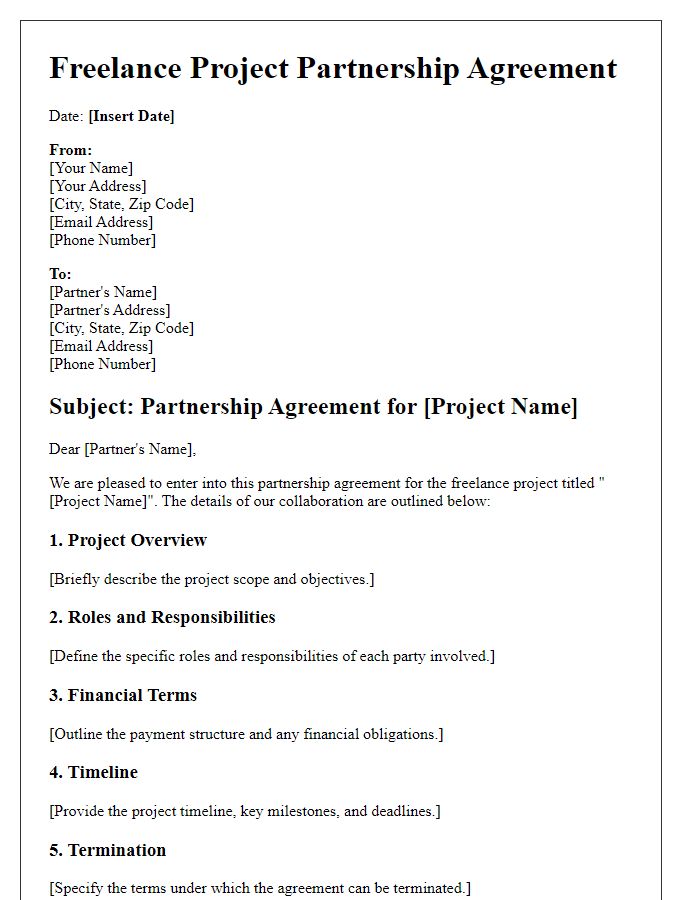
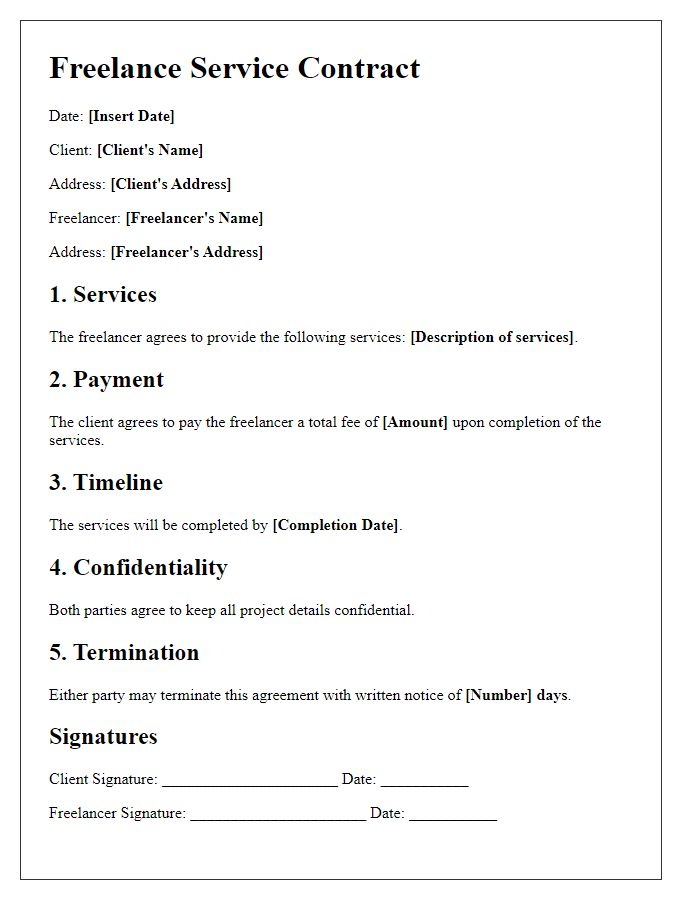
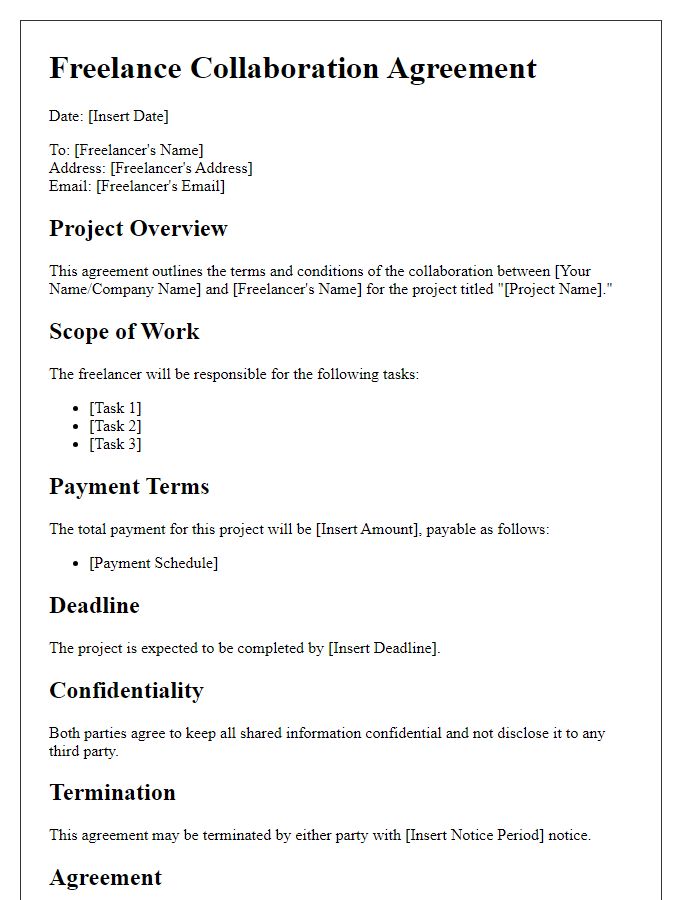
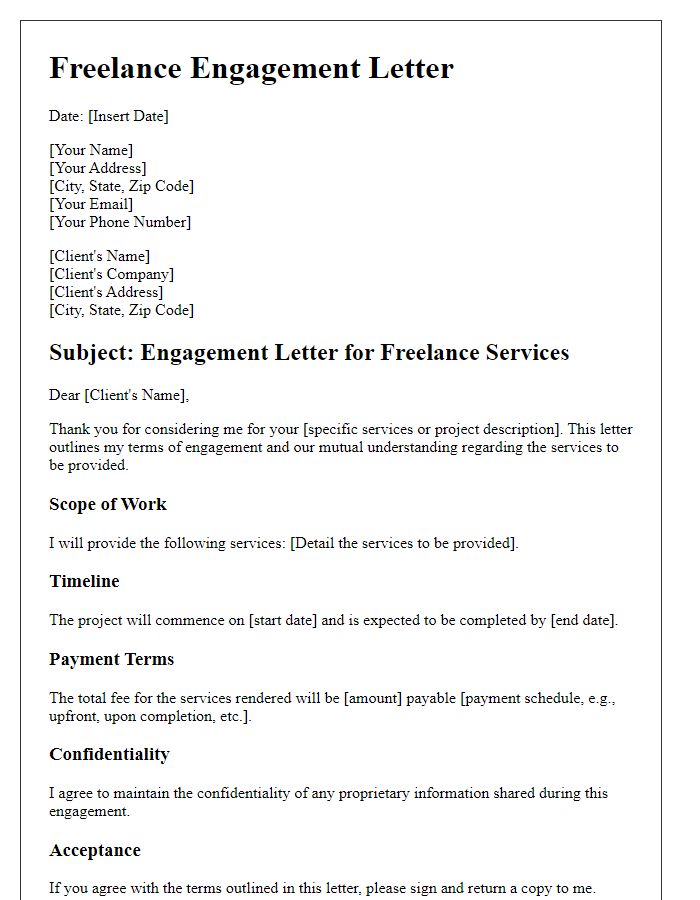
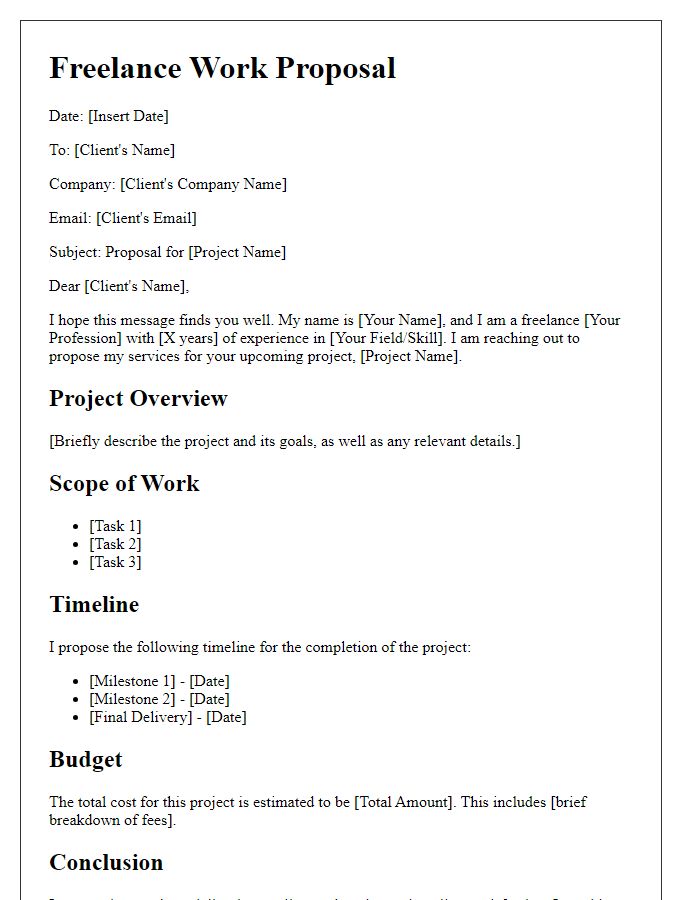
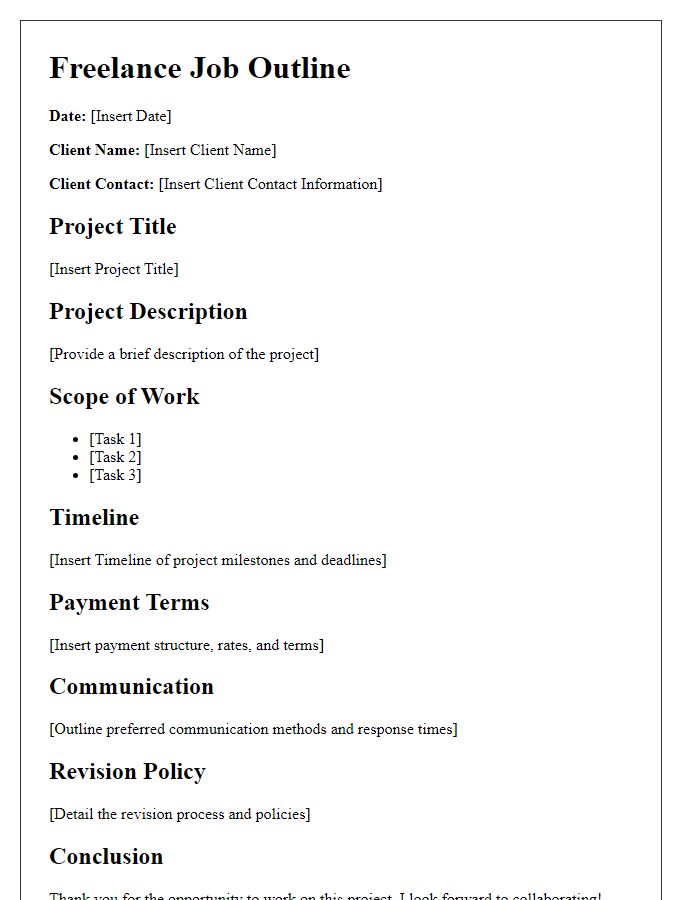
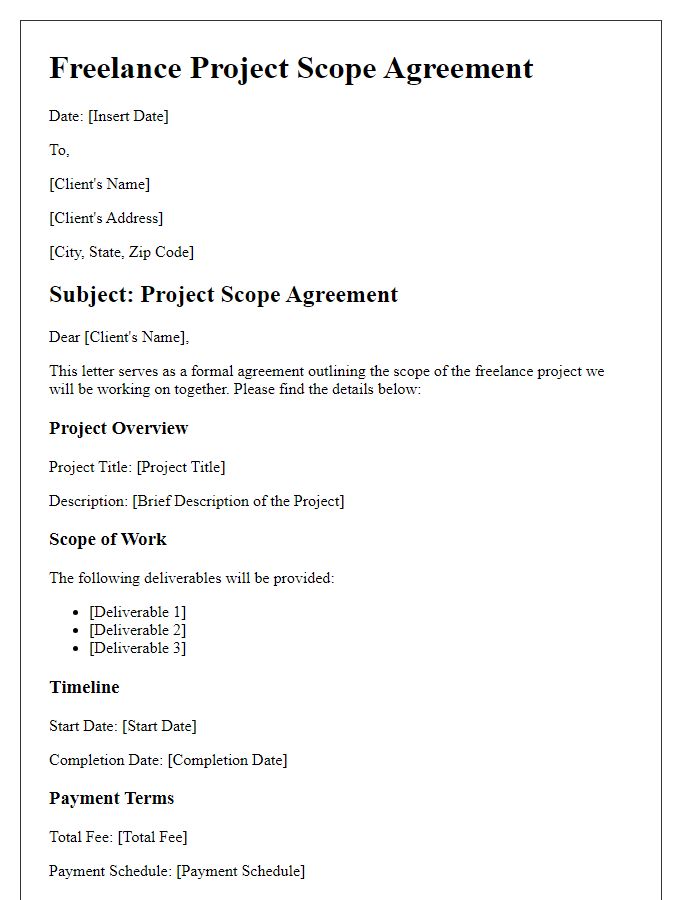
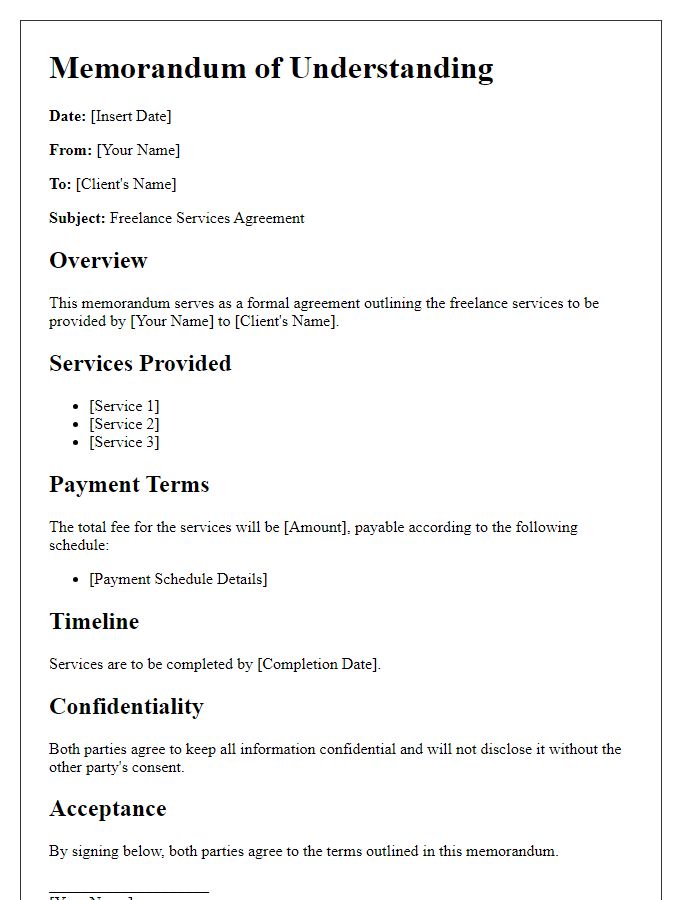
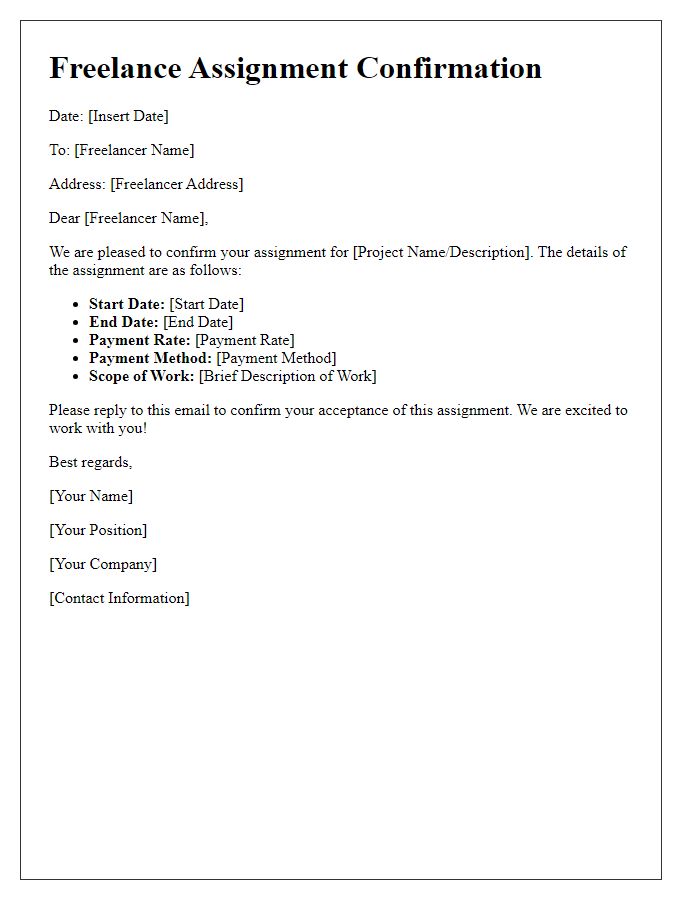
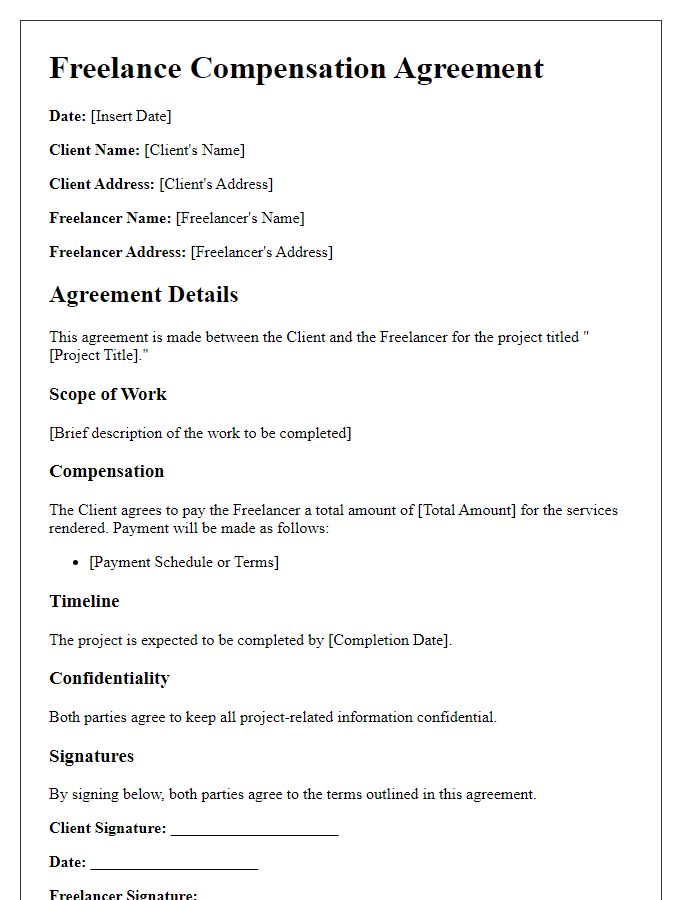

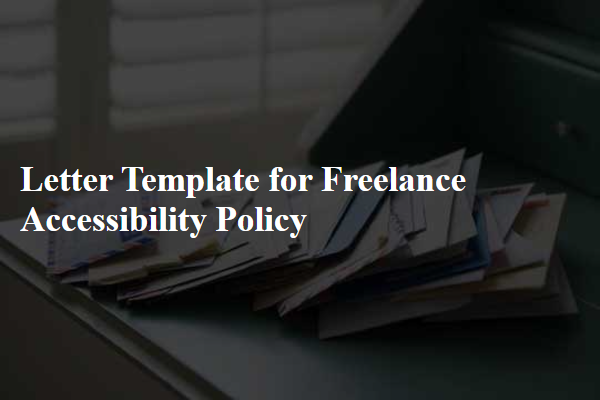
Comments